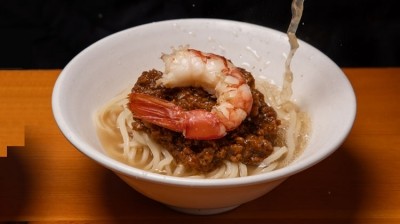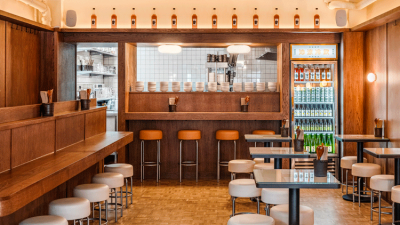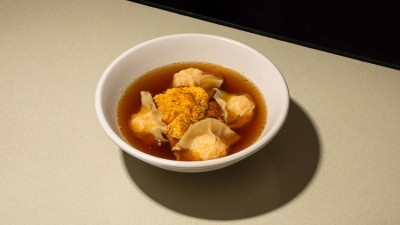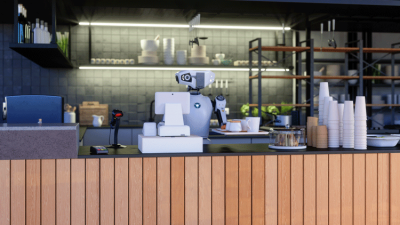Shing Tat Chung: “Restaurants are analogue, but there is a big appetite for digitalisation”
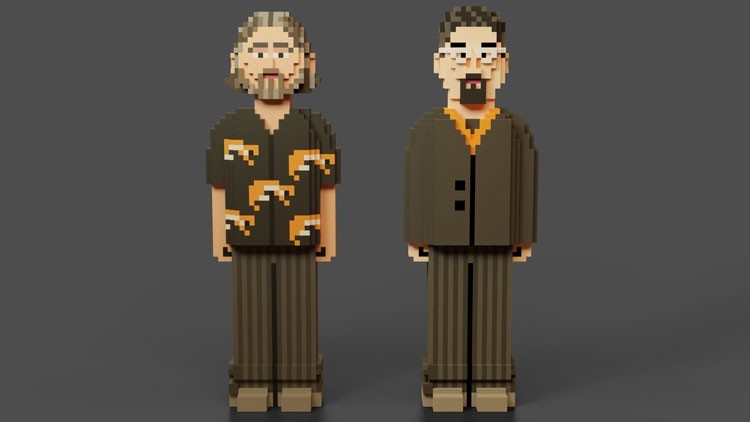
Looking good chaps...
Shing Tat Chung: Kind of you to say. These are our digital avatars for our new BAOverse app. Our users will soon be able to create their own avatars and customise and upgrade them while also unlocking real-life perks and benefits. This might be a cocktail, or the ability to skip the queue at BAO during busy times. By claiming BAOcoin and taking advantage of bonuses throughout the BAOverse, app users can increase their spending power in BAO by as much as 20%.
Kenjiro Kirton: We have lots of new functionality planned. One possibility is the introduction of augmented reality ordering, which would allow BAO guests to order in a more intuitive way by flicking through pictures of menu items and being able to see a digital representation of the meal they have chosen.
Restaurants are essentially an analogue experience. Why invest so heavily in an app?
STC: Restaurants are analogue, but there is a big appetite for digitalisation from our guests. We’re attracted to this area because we like to innovate and come up with things first. And as a cult brand, loyalty and community has always been a focus for us.
KK: Covid accelerated digital in restaurants, but the rush to introduce new technology resulted in some apps and websites that were quite poor in terms of branding and user experience.
Your app seeks to gamify the restaurant experience. What does that mean in practice?
STC: It's a bit like a computer game called Animal Crossing (which sees players build and interact with a town of anthropomorphic animals).
KK: Users can come and explore the world and increase their tier by visiting the BAO restaurants across London, collect points and convert them into physical prizes.
STC: Every time app users spend £1 in the restaurants or on BAO’s online channels, they will receive 5 BAOcoins. Items start at 300 coins for a free classic bao. We start people off with 250 BAOcoins, so they will be able to earn their first reward quickly.
This is clearly a big investment of actual cash. What metrics will you use to analyse ROI?
STC: It’s difficult to put an ROI on this sort of thing. Our target is 15,000 users by the end of the first year. If we assume that one third of them are active and the app causes them to come back to BAO just once that would increase group turnover by around 1%, which would pay for the app’s development costs.
KK: We expect users of the app to come much more than once. The feedback from users on the BAOverse has so far been great. And the numbers are good: when we launched we had 2,000 downloads in one week, which is well above expectations.
Does the app integrate with BAO's POS?
KK: It's not currently possible to order your food or pay via the app, but that is something we are able to introduce further down the line. Right now, the app is linked to POS transactions by a code on the receipt that guests type in (free items are also redeemed via a code). The BAOverse app does integrate more seamlessly with BAO CONVINI (BAO’s online store).
Is this what people mean when they talk about the Metaverse?
STC: Sort of. The BAOverse is certainly a reference to the Metaverse and is a digital layer to the real world. The thing is, nobody is entirely sure what the Metaverse will be like yet.
KK: We're excited about Apple's equivalent to Meta’s Metaverse, which launches this year. We anticipate that Apple’s version won't require VR hardware. They are already talking to developers. They know that it must be accessible to succeed. This is the very beginning of this technology; it will be interesting to see what happens and how restaurants fit into it.
You’re teaming up to launch a separate digital agency that will help other restaurants with their digital presence…
STC: BAO has been working with Ken’s creative studio HATO for some time. We knew soon on that we would eventually like to collaborate on something. Our fields are quite different, but we share the same values and mission.
KK: We want to help other restaurants create their digital layers. Not in Game will develop technology that merges physical and digital within the F&B sector. It would not necessarily even need to be an app.
